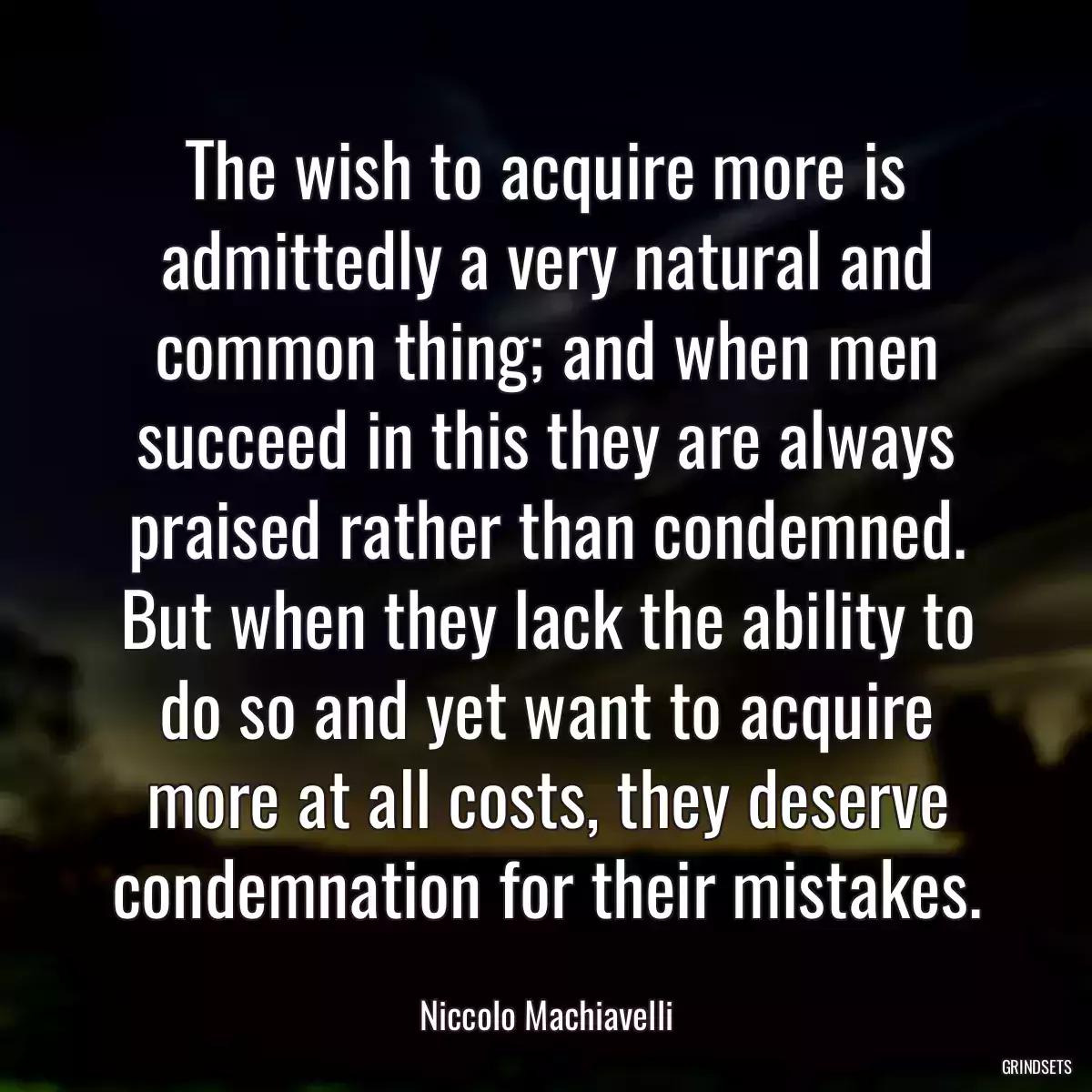
Quotes Niccolò Machiavelli
Find dozens of Niccolò Machiavelli with images to copy and share.

Men in general judge more from appearances than from reality. All men have eyes, but few have the gift of penetration.
Men are less hesitant about harming someone who makes himself loved than one who makes himself feared because love is held together by a chain of obligation which, since men are wretched creatures, is broken on every occasion in which their own interests are concerned; but fear is sustained by dread of punishment which will never abandon you.
Many have imagined republics and principalities which have never been seen or known to exist in reality; for how we live is so far removed from how we ought to live, that he who abandons what is done for what ought to be done, will rather bring about his own ruin than his preservation.
You may also like
A wise prince then...should never be idle in times of peace but should industriously lay up stores of which to avail himself in times of adversity so that when fortune abandons him he may be prepared to resist her blows.
Ability and perseverance are the weapons of weakness.
When fortune wishes to bring mighty events to a successful conclusion, she selects some man of spirit and ability who knows how to seize the opportunity she offers.
He who has not first laid his foundations may be able with great ability to lay them afterwards, but they will be laid with trouble to the architect and danger to the building.
A wise man ought always to follow the paths beaten by great men, and to imitate those who have been supreme, so that if his ability does not equal theirs, at least it will savor of it. Let him act like the clever archers who, designing to hit the mark which yet appears too far distant, and knowing the limits to which the strength of their bow attains, take aim much higher than the mark, not to reach by their strength or arrow to so great a height, but to be able with the aid of so high an aim to hit the mark they wish to reach.

War should be the only study of a prince. He should consider peace only as a breathing-time, which gives him leisure to contrive, and furnishes as ability to execute, military plans.
Where the willingness is great, the difficulties cannot be great.
It is the duty of a man of honor to teach others the good which he has not been able to do himself because of the malignity of the times, that this good finally can be done by another more loved in heaven.
Republics have a longer life and enjoy better fortune than principalities, because they can profit by their greater internal diversity. They are the better able to meet emergencies.
For government consists in nothing else but so controlling subjects that they shall neither be able to, nor have cause to do [it] harm.
Men are able to assist fortune but not to thwart her. They can weave her designs, but they cannot destroy them.
Therefore it is unnecessary for a prince to have all the good qualities I have enumerated, but it is very necessary to appear to have them. And I shall dare to say this also, that to have them and always to observe them is injurious, and that to appear to have them is useful; to appear merciful, faithful, humane, religious, upright, and to be so, but with a mind so framed that should you require not to be so, you may be able and know how to change to the opposite.
Thus it is well to seem merciful, faithful, humane, sincere, religious, and also to be so; but you must have the mind so disposed that when it is needful to be otherwise you may be able to change to the opposite qualities.
You may also like

I am firmly convinced, therefore, that to set up a republic which is to last a long time, the way to set about it is to constitute it as Sparta and Venice were constituted; to place it in a strong position, and so to fortify it that no one will dream of taking it by a sudden assault; and, on the other hand, not to make it so large as to appear formidable to its neighbors. It should in this way be able to enjoy its form of government for a long time. For war is made on a commonwealth for two reasons: to subjugate it, and for fear of being subjugated by it.